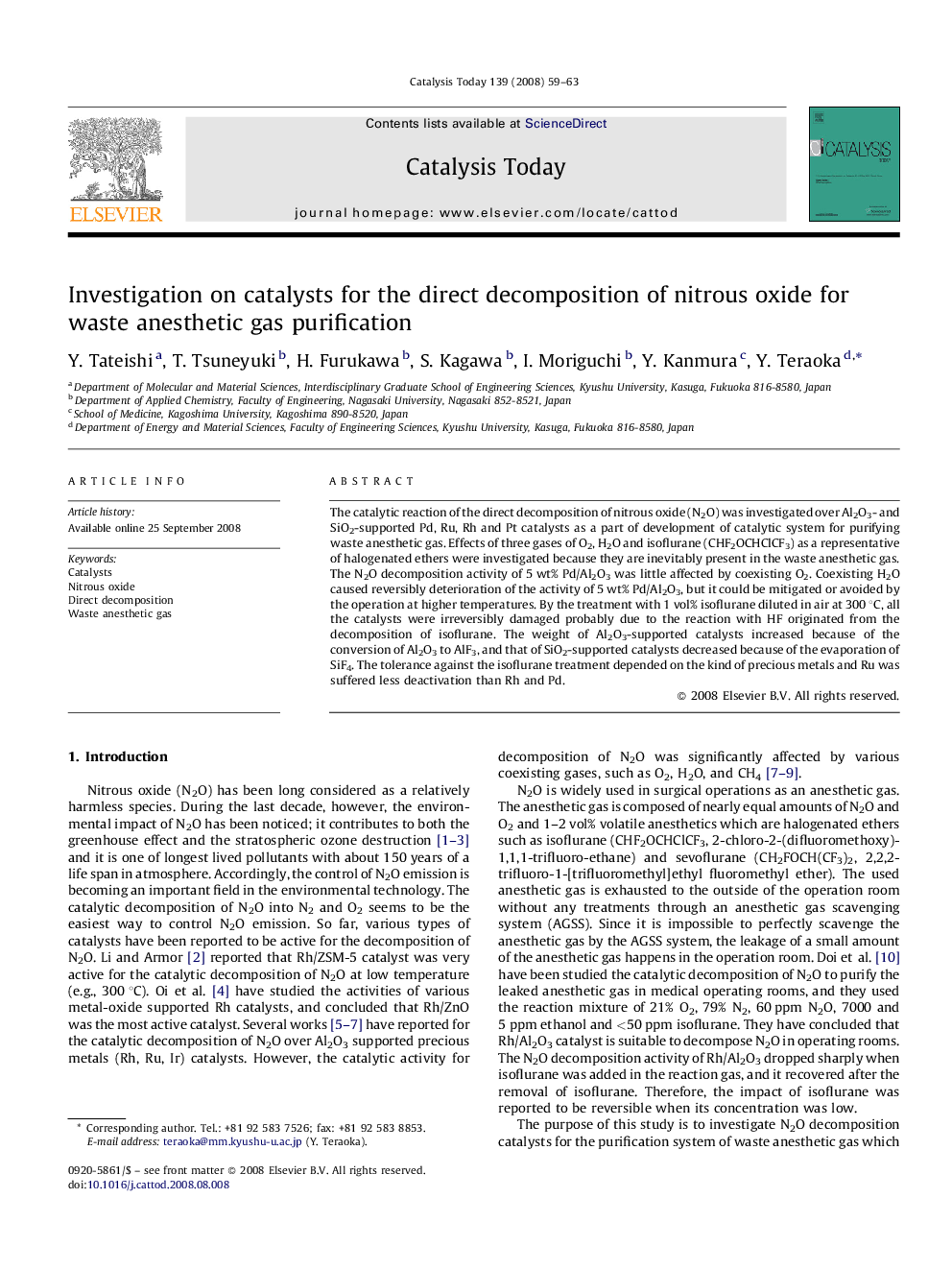| Article ID | Journal | Published Year | Pages | File Type |
|---|---|---|---|---|
| 57406 | Catalysis Today | 2008 | 5 Pages |
The catalytic reaction of the direct decomposition of nitrous oxide (N2O) was investigated over Al2O3- and SiO2-supported Pd, Ru, Rh and Pt catalysts as a part of development of catalytic system for purifying waste anesthetic gas. Effects of three gases of O2, H2O and isoflurane (CHF2OCHClCF3) as a representative of halogenated ethers were investigated because they are inevitably present in the waste anesthetic gas. The N2O decomposition activity of 5 wt% Pd/Al2O3 was little affected by coexisting O2. Coexisting H2O caused reversibly deterioration of the activity of 5 wt% Pd/Al2O3, but it could be mitigated or avoided by the operation at higher temperatures. By the treatment with 1 vol% isoflurane diluted in air at 300 °C, all the catalysts were irreversibly damaged probably due to the reaction with HF originated from the decomposition of isoflurane. The weight of Al2O3-supported catalysts increased because of the conversion of Al2O3 to AlF3, and that of SiO2-supported catalysts decreased because of the evaporation of SiF4. The tolerance against the isoflurane treatment depended on the kind of precious metals and Ru was suffered less deactivation than Rh and Pd.
